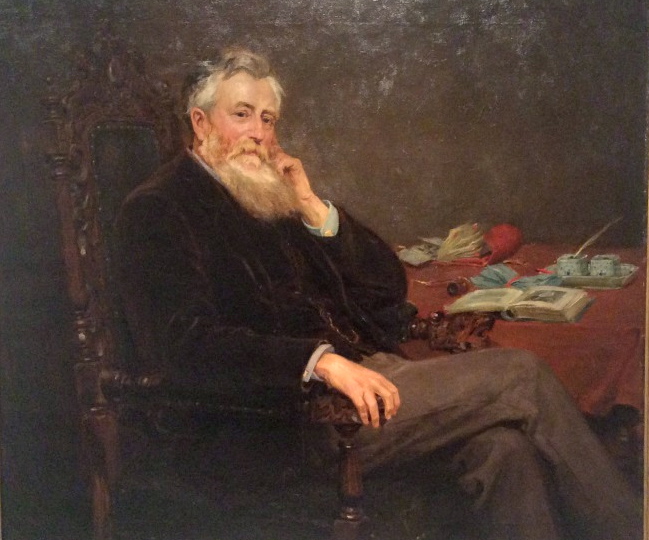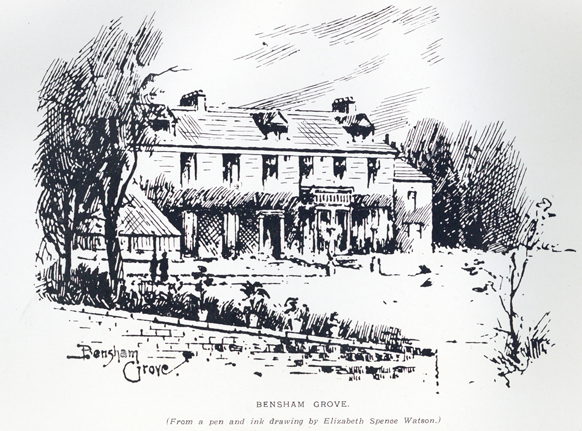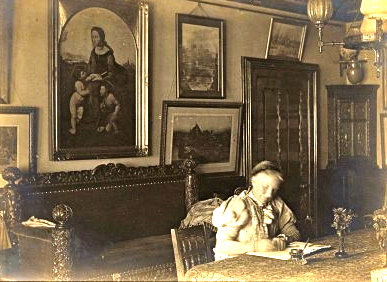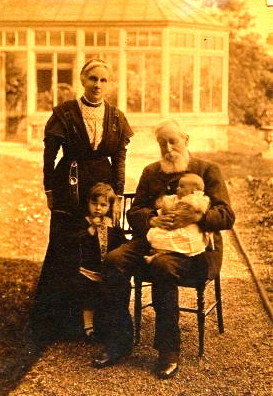Robert Spence Watson

Painting of Robert Spence Watson by artist Ralph Hedley
Robert Spence Watson was born 8 June 1837 at 10 Claremont Place, Gateshead and was the second child of Joseph and Sarah Watson.
He began his education in 1846 as a pupil of Dr. Collingwood Bruce then moved onto to study at Bootham School, York, at the age of 11, where he remained until he was 15. From a young age Spence Watson showed academic acumen, noted as the only boy who was able to spell 99 out of 100 words in a spelling test at Bootham, with the one wrong word being ‘fuchsia’
Just before his 16th birthday in 1853, Spence Watson began studying at University College, London, where he tied for the 1853 English Literature prize. To his later regret, he decided not to complete the course and swiftly made his way back home to the North East.

as a younger man
Advertisement

1853 was a busy year for Spence Watson. His time spent in London saw him progress with his career as he gave his first budget speech to the House of Commons and it also saw him travel abroad for the first time – a pastime that later became a regular feature within his life.
In 1856, Spence Watson had a large share in the management of the Newcastle Black Shoe Brigade, which often meant rough and dirty work at midnight with vagrants and young thieves, many of whom later became competent and honest workmen as a result of his influence.
After studying in London for a couple of years, Spence Watson moved back to the North East in 1860 and was admitted to practice as a lawyer. This achievement led him to begin a legal practice with his father, trading as J. & R S Watson, where he remained a practising lawyer for the rest of his life.
Spence Watson had an immense passion for the arts and education which resulted in him becoming the Secretary to the Newcastle Literary & Philosophical Society in 1862 – a post which he held for 31 years. He used this position to exert great influence on the region and further afield to help establish the Lit & Phil. As a result of the hard work of him and others the Lit & Phil is now established as the UK’s largest independent library outside of London, housing more than 150,000 books as well as a music and DVD library.
On 9 June 1863, Robert Spence Watson married Elizabeth Richardson at the Friends’ meeting house, Pilgrim Street, Newcastle and the couple went on to have six children together.
As Spence Watson’s increased interest in education came to the fore, 1868 saw the start of him publishing his work, with the first paper entitled “A Plan for Making the society more extensively useful, as an educational institution”.
In 1871, Spence Watson help to found the Durham College of Science, which later became Armstrong College, and developed into Newcastle University. He became its first president in 1910. Any educational movement could depend on Spence Watson’s support. He led the way in university extension for the north and in the creation of the Newcastle Free Public Library.
After the death of his father in 1875, Robert, Elizabeth and their children moved into the Watson family home at Bensham Grove, Gateshead, where they remained for the rest of their lives. 
see also Large Houses


As the recognised arbitrator in the coal trade in the North, Earl Spencer described him in 1891 as “perhaps the greatest living authority in England on labour questions.”
In 1901 Spence Watson became President of the Lit and Phil, where he documented the full history of the Society, which is now on display in the library and he remained in this post up until his death in 1911.
He was a lifelong Quaker, an active member of the liberal party, and became a member of the Privy Council in 1907.

History of the House
In the early 1800s, Joshua Watson, a cheesemonger living over his shop on the Newcastle Quayside, bought Bensham Grove. He wanted somewhere in the country to raise a family and still be close enough to his work. Bensham, back then, fitted the bill
Three successive generations of the same family lived there. After Joshua came son Joseph and then his son Robert Spence, until 1919 when it became an Educational Settlement. It is still a centre for Adult Education as well as a Community Centre.
Robert Spence Watson photos are brought to you by
The Felling Heritage Group